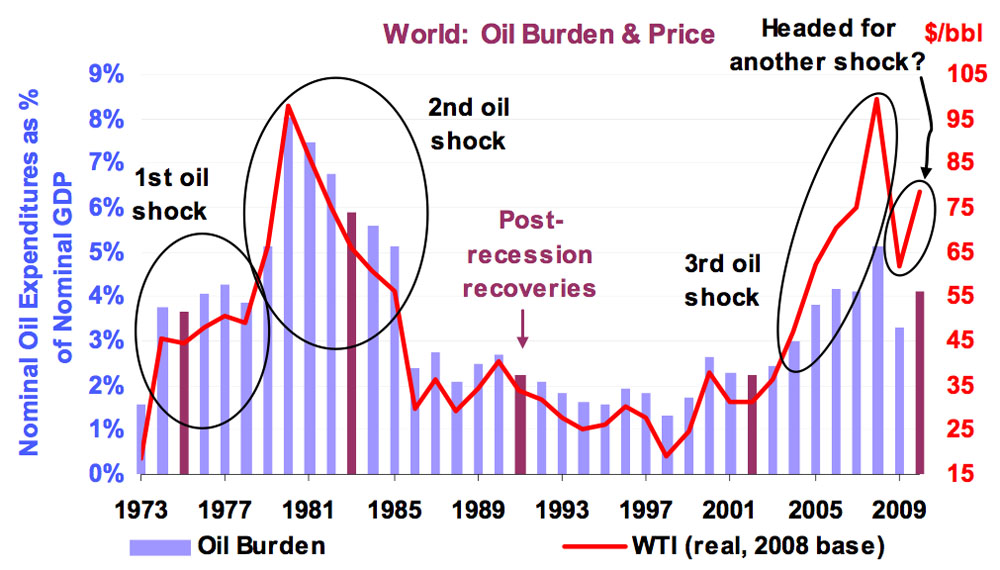Oil Supply Shocks: How The Airline Industry Is Feeling The Heat

Table of Contents
Soaring Fuel Costs: The Biggest Challenge for Airlines
For airlines, fuel is a significant operational expense, often second only to labor costs. Oil price increases directly translate to higher fuel bills, drastically impacting profitability. A 10% increase in the price of jet fuel, for instance, can significantly erode an airline's profit margin, especially for those with less robust fuel hedging strategies. In recent years, we've seen substantial increases in fuel costs, impacting airlines worldwide. For example, [Insert statistic showing percentage increase in fuel costs over a specific period, e.g., "between Q1 2022 and Q1 2023, average jet fuel costs increased by 25%"]. This has led to:
- Increased operational expenses: Higher fuel costs directly increase the overall cost of each flight.
- Reduced profit margins: Airlines see a significant decrease in their profitability, impacting their ability to invest in expansion or improvements.
- Potential for increased airfare: Airlines often pass on increased costs to consumers through higher ticket prices.
- Impact on smaller airlines: Smaller airlines with less financial leverage and limited fuel hedging capabilities are particularly vulnerable to these fluctuations.
Operational Adjustments in Response to Oil Supply Shocks
Faced with soaring fuel costs, airlines are forced to implement various strategies to mitigate the impact. These operational adjustments are crucial for survival in a volatile market. Airlines employ a range of tactics to maintain profitability and efficiency, including:
- Route optimization and consolidation: Airlines may reduce flights on less profitable routes or consolidate routes to optimize fuel consumption.
- Increased efficiency through technological improvements: This includes using lighter aircraft, implementing advanced flight planning software to optimize flight paths and reduce fuel burn, and investing in more fuel-efficient engines.
- Fuel hedging strategies: Airlines utilize futures contracts to lock in fuel prices at a predetermined rate, mitigating some of the risk associated with price volatility.
- Load factor optimization: Airlines aim to maximize the number of passengers on each flight to improve fuel efficiency per passenger.
- Ground operations efficiency improvements: Improving ground handling processes, such as faster turnaround times, can also contribute to overall fuel savings.
The Ripple Effect: How Oil Supply Shocks Affect Airfares and Passengers
The increased fuel costs driven by oil supply shocks don't stay contained within airline balance sheets. The impact ripples out, directly affecting airfares and the passenger experience. The relationship between fuel costs and air ticket prices is fairly direct: higher fuel costs generally lead to higher airfares. This can result in:
- Increased airfare: Passengers will likely see a rise in air ticket prices.
- Reduced flight frequency on certain routes: Less profitable routes might see a reduction in the number of flights offered.
- Potential for route cancellations: Airlines may be forced to cancel less profitable routes altogether.
The impact on different travel segments varies. Business travelers, often less price-sensitive, might absorb higher costs more readily than leisure travelers, who may reduce their travel plans or opt for alternative transportation. Government intervention, in the form of subsidies or tax breaks, might be considered in extreme cases to alleviate the burden on both airlines and consumers.
Long-Term Implications and the Search for Sustainable Aviation Fuel (SAF)
The long-term implications of fluctuating oil prices are significant for the airline industry. The need for sustainable alternatives is no longer a matter of debate; it's a necessity. Sustainable Aviation Fuel (SAF) is emerging as a critical solution. SAF, derived from renewable sources like used cooking oil or agricultural waste, offers a pathway to decarbonizing air travel. However, scaling up SAF production and infrastructure presents significant challenges.
- Government policies and initiatives: Governments worldwide are implementing policies and incentives to encourage SAF production and adoption.
- Challenges in scaling up SAF production: The current production capacity of SAF is limited, and expanding it requires significant investment and technological advancements.
- Carbon Offset programs: In the short term, carbon offset programs can help airlines reduce their environmental footprint, while SAF development continues to progress.
Conclusion: Navigating the Turbulent Waters of Oil Supply Shocks
Oil supply shocks present a significant and ongoing challenge for the airline industry. Effective fuel cost management, operational efficiency, and a commitment to sustainable alternatives are crucial for navigating these turbulent waters. The long-term viability of the industry depends on the successful adoption of SAF and a broader shift towards more sustainable practices. Understanding the impact of oil supply shocks is crucial for both airlines and passengers. Stay informed about the impact of oil supply shocks on the airline industry and consider sustainable travel options to lessen your carbon footprint.

Featured Posts
-
 Mathieu Spinosi Et Son Violon Une Matinale Exceptionnelle
May 03, 2025
Mathieu Spinosi Et Son Violon Une Matinale Exceptionnelle
May 03, 2025 -
 Uk Local Elections Will Nigel Farages Reform Party Succeed
May 03, 2025
Uk Local Elections Will Nigel Farages Reform Party Succeed
May 03, 2025 -
 Qua Xua It Nguoi Biet Den Nay Ban 60 000d Kg Ly Do Nen Thu
May 03, 2025
Qua Xua It Nguoi Biet Den Nay Ban 60 000d Kg Ly Do Nen Thu
May 03, 2025 -
 Radio 4 Scheduling Why Robinson And Barnett No Longer Co Host
May 03, 2025
Radio 4 Scheduling Why Robinson And Barnett No Longer Co Host
May 03, 2025 -
 Kme Vedjegy Garancia A Kivalo Minosegu Mecsek Baromfi Termekekre
May 03, 2025
Kme Vedjegy Garancia A Kivalo Minosegu Mecsek Baromfi Termekekre
May 03, 2025
